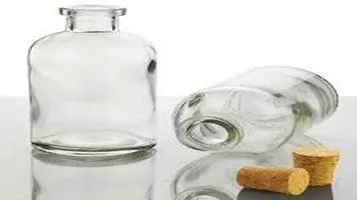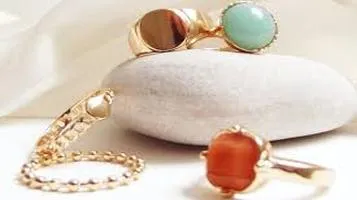Embracing the Timeless Elegance and Utility of Glass Bottles
Glass bottles are versatile containers commonly used for storing liquids such as beverages, oils, and perfumes. Made from silica sand, soda ash, and limestone, they are crafted through a process of heating and molding, resulting in a durable and non-porous structure. Glass is favored for its ability to preserve the taste and purity of its contents, as it is impermeable to gases and liquids, and does not leach chemicals. Available in various shapes, sizes, and colors, glass bottles offer aesthetic appeal and can be recycled indefinitely, making them an environmentally friendly choice. Their transparency allows for easy identification of contents, while their weight and fragility require careful handling. Glass bottles continue to be a popular choice for both consumers and manufacturers.

Introduction
In an age where sustainability and environmental consciousness are becoming increasingly paramount, glass bottles have re-emerged as a popular choice for both consumers and manufacturers alike. Their blend of functionality, aesthetic appeal, and eco-friendliness makes them a compelling option for a wide range of applications, from beverage containers to decorative items. This review delves into the multifaceted benefits of glass bottles, examining their environmental impact, health implications, practicality, and aesthetic value.
Environmental Impact
One of the most significant advantages of glass bottles is their positive environmental impact. Unlike plastic, which can take centuries to decompose and often contributes to severe environmental pollution, glass is 100% recyclable. It can be reused indefinitely without loss of quality or purity. This closed-loop recycling process significantly reduces the demand for raw materials and energy consumption, thereby lowering the carbon footprint associated with production.
Moreover, glass bottles do not leach harmful chemicals into the environment. Plastics, especially when exposed to heat, can release toxic substances like BPA and phthalates, which pose substantial risks to both human health and ecosystems. In contrast, glass is chemically inert, ensuring that it remains harmless throughout its lifecycle. By choosing glass over plastic, consumers can actively contribute to reducing pollution and promoting a healthier planet.
Health Implications
The health benefits associated with using glass bottles cannot be overstated. As mentioned earlier, glass is chemically inert, meaning it does not interact with its contents. This property is particularly crucial for food and beverage storage. Unlike plastic containers, which can leach chemicals into drinks and food, especially when heated, glass bottles preserve the purity and taste of their contents. This makes them an excellent choice for storing water, juices, milk, and even alcoholic beverages like wine and beer.
Additionally, glass bottles are easier to clean and sterilize compared to plastic. They can be washed at high temperatures without degrading, ensuring that they remain sterile and free from contaminants. This feature is especially beneficial for baby bottles and food storage jars, where hygiene is paramount.
Practicality and Durability
Glass bottles are not only environmentally friendly and health-conscious but also practical and durable. Despite a common misconception that glass is fragile, modern manufacturing techniques have significantly enhanced the strength and resilience of glass containers. Many glass bottles are now designed to be shatter-resistant and can withstand substantial impacts. Furthermore, they do not degrade over time, maintaining their integrity and appearance even after prolonged use.
One of the practical advantages of glass bottles is their transparency. This feature allows users to easily see the contents inside, which is particularly useful in the kitchen or for products like essential oils and cosmetics. The ability to monitor the level and condition of the contents without opening the container adds a layer of convenience that opaque materials like plastic cannot offer.
Aesthetic Value
Beyond their functional benefits, glass bottles offer a timeless aesthetic appeal. Their clarity, gloss, and weight convey a sense of quality and luxury that plastic simply cannot match. This makes them a preferred choice for high-end products and gifts. Whether it’s a beautifully designed wine bottle, an artisanal olive oil container, or a vintage-style milk bottle, glass enhances the visual and tactile experience of the product.
Moreover, glass bottles are highly customizable. They can be molded into various shapes and sizes, frosted for a sophisticated look, or colored to protect light-sensitive contents. Labels and embossing further add to their aesthetic versatility, allowing brands to create unique and attractive packaging that stands out on the shelves.
Versatility in Usage
The versatility of glass bottles extends beyond their primary use as beverage containers. They are equally popular in other areas such as home décor, crafts, and storage solutions. Many people repurpose glass bottles as vases, candle holders, or even lamps, adding a touch of elegance and creativity to their living spaces. In the kitchen, glass jars and bottles are ideal for storing spices, grains, and homemade preserves, combining practicality with style.
Challenges and Considerations
While glass bottles offer numerous benefits, there are some challenges and considerations to keep in mind. The primary drawback is their weight compared to plastic. Glass is heavier, which can increase transportation costs and make them less convenient to carry around. Additionally, despite advancements in durability, glass can still break under extreme conditions, posing a risk of injury.
Another consideration is the cost. Glass bottles are generally more expensive to produce than plastic ones, which can translate to higher prices for consumers. However, many people find that the long-term benefits, both environmental and health-related, justify the initial investment.
Conclusion
In summary, glass bottles represent a harmonious blend of elegance, practicality, and sustainability. Their environmental benefits, coupled with their health advantages and aesthetic appeal, make them a superior choice for a wide range of applications. While there are some challenges to consider, the overall value that glass bottles offer is undeniable. As we continue to seek sustainable and health-conscious solutions in our daily lives, embracing glass bottles is a step in the right direction.






